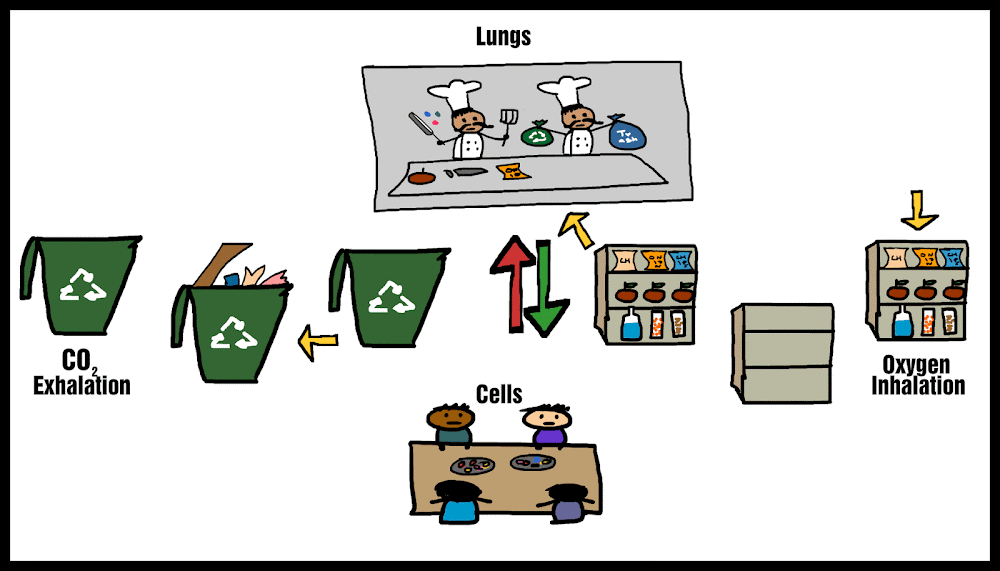With all the anxiety of flying on planes with an infected person onboard, a lot of you might have resorted to fantasizing how your life would be different if you had wings?
First of all, that would be just plain creepy, observing fellow humans from above while they are unaware they are being watched. That is NSA's job.
Secondly, our respiratory systems are simply not cut out for the job.
This does not test our respiratory systems to the max since our bodies are not working that hard. Go for a run or a hike and you will see yourself panting since the body now needs to burn more energy to keep up with the body's demands and hence needs more oxygen to fuel this engine. This in turn will increase your heart rate so blood is quickly pumped across the body so all the cells that need oxygen can get it fast. (Curious of how cells exchange oxygen for CO2, check this post)
If humans were to fly by flapping giant wings attached to their arms they will fall short in providing the oxygen to sustain the flight.
Birds have evolved to have a respiratory system with lungs and air sacs. The advantage of having air sacs is the lungs do not have to work as hard and cells have a constant supply of oxygen with the help of air sacs.
As shown in the example animation below, the people dining are always fed a constant supply of food(oxygen) and all their trash(CO2) is constantly taken out with each inhalation and exhalation. Having air sacs which act like additional pantry and trash cans makes this process much more efficient in birds.
If these issues are ignored, it will affect their feathers, which will cause the Federal Aviation Administration(FAA) to suspend its flying license and ground it for life.
So it might come as a surprise, when you see some House Sparrows rubbing themselves on the ground, as if they are the rebels of the bird world and won't play by the rules.
You see, this behavior is common in House Sparrows called dust bathing and they will take these dust baths to keep their feathers clean and in top condition.
But how does dust help in keeping them in top condition you ask? Am glad you did, since when they are grooming their feathers they will apply an oil called preen oil and when this oil is in excess it can cause the feathers to stick.
And who likes oily, sticky feathers. So just how you would use a towel to wipe the excess hair gel, they will use the dust to absorb the excess preen oil.
Sometimes a bird will be seen fluffing its feathers as part of their grooming process. This is so that it can align all their feathers during the process of grooming.
It is their equivalent of restarting the computer but with feathers.
Below is a California Scrub-Jay indulging in one of those behaviors.








No comments:
Post a Comment
Did you learn something new in this post? Let us know in the comments below